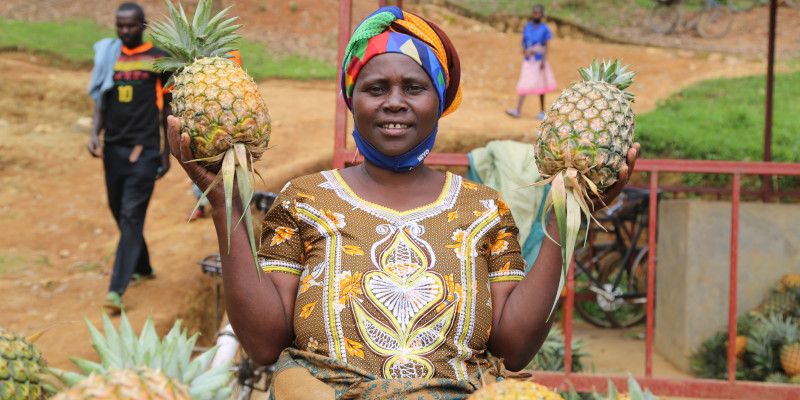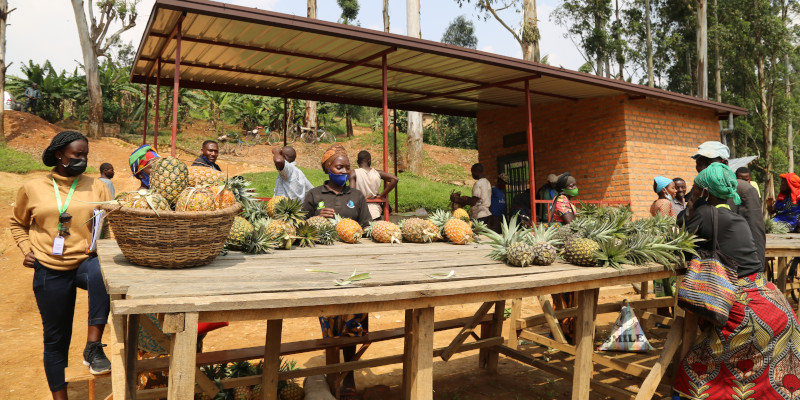
Post-Harvest Facilities for Horticulture Farmers Bearing Fruits in Rwanda
Mrs Pelagie Uwamugurije (50) is a pineapple farmer and trader in Nyamagabe District in Rwanda. In 2021, she joined the new pineapple collection and selling centre there, an initiative supported by the Oxfam through Sustainable Horticulture Value Chains (HVC) Project a project financed by the European Union – MARKUP and Irish Aid through Rwanda’s Ministry of Finance and Economic Planning. The collection centre provides a well-aired space where farmers can keep their produce for a few days, protected from hot sun and safe from theft.
“Before we had this facility I had to sell the small harvest I used to obtain directly on the farm and buyers would give me low prices because they knew I had nowhere to store my harvest and it would spoil if I didn’t sell it quickly”, Pelagie said. “Access to the new storage facilities has taught us the application of new post-harvest handling practices, reduced our harvest losses, and allowed us to sell at a good market price. We are now able to store the pineapples in good condition as we wait for buyers.”
Pelagie collects and sells pineapples at the established collection center. Photo by Laetitia U./Oxfam/2022
In addition to high post-harvest losses due to lack of storage facilities, Pelagie was struggling with low yields, as she and most pineapple farmers in her community did not know about good agricultural practices in horticulture value chains including management of post harvest losses.
Pelagie, a mother of six children and two grandchildren, is one of the farmers supported by the HVC Project to improve pineapple production and increase her returns from the sale of produce. Initially, Pelagie and her family could not get enough yields from growing pineapples on their 3-hectare plot due to lack of appropriate skills in modern agricultural practices and techniques.
Training provided by the HVC Project through its implementing partner COCOF helped Pelagie to harvest 2,000 pineapples per week instead of the 500 she used to get before.
“My household income increased since I started selling pineapples and I have been able to take up a long-term bank loan which I service with ease. I used the loan to expand my business and improve our livelihood,” she said.
Pelagie has been able to educate her children and buy more farming land. She and her husband were able to build their own house.
Pelagie and her family still need to make improvements to their farm, for example purchase adequate harvesting equipment and want to purchase a car to transport their produce from the fields to the collection center.
EU - MARKUP through HVC project has been supporting farmers and other actors in the horticulture value chains in Rwanda since 2020 by providing farming technologies, improving access to post-harvest handling facilities, and facilitating market linkage of horticulture produce to local and export markets for improved livelihoods.
By: Laetitia Umulisa, Oxfam (MARKUP) Rwanda
